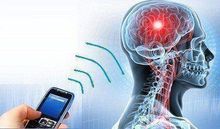
Extremely low frequency electric and magnetic fields (ELF-EMF) are produced by both natural and artificial sources. Naturally occurring ELF-EMF are associated with atmospheric processes such as ionospheric currents, thunderstorms, and lightning. However, artificial sources are the most dominant sources of ELF-EMF and are usually associated with the generation, distribution and use of electricity at the frequency of 50 or 60 Hz. Powerlines, electrical wiring and common appliances such as electric blankets, televisions, hairdryers, and computers all produce ELF-EMF.
There are studies confirming magnetic fields can have damaging biological effects on human cells and tissues. Exposure to such fields has been shown to disrupt neuroendocrine activity and are associated with stress, depression, learning disorder, sleep disturbances, and anxiety. It is believed that this disruption may be due to the formation of free radicals and oxidative stress. Chronic oxidative stress can cause damage to all organs, with the brain being particularly susceptible.
In several studies, it has been revealed that employees working at high voltage substations (where they are exposed to long-term magnetic fields) are associated with sleep disorders, depression, paranoia, anxiety and psychosis [1,2]
In a recent study, the effect of chronic exposure to ELF-EMF on sleep quality, stress, depression, and anxiety among exposed power plant workers was investigated [3]. In this cross-sectional study, sleep quality and mental health were compared between 132 power plant workers (exposed workers) and 143 demographically-matched workers (unexposed workers).
The researchers found that exposed workers experienced significantly poorer sleep quality and greater depression than the unexposed group. Furthermore, sleep quality in technicians with the highest ELF-EMF exposure was significantly lower than power plant office workers. The damaging effects of ELF-EMF on sleep exposure has been confirmed in other studies [4,5]. It is believed that the sleep-deteriorating effects of ELF-EMF may be due to its effects on the sleep hormone, melatonin. In fact, it was shown that melatonin levels were lower in electronic equipment repairers [5].
These results highlight the potentially damaging effects of ELF-EMF exposure on sleep and mental health. While some workers may be at greatest risk, the reality is we are exposed to EMFs. Some people are likely to be more sensitive than to EMFs than others which can increase their risk of developing depression and sleep disorders. It is therefore important that we all do what we can to reduce EMF exposure. This includes minimising computer use, moving electric clocks from our bedside table, limiting mobile phone use, avoiding the use of electric blankets, and turning off wifi when it is not in use. As EMFs can increase free radical damage it is also important that we increase our intake of antioxidants. These include eating lots of fruit and vegetables and consuming high-antioxidant herbs and spices such as saffron, turmeric, rosemary, cinnamon, and oregano. Supplementation with antioxidants may also prove to be beneficial.